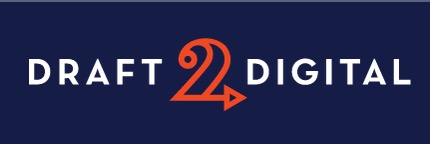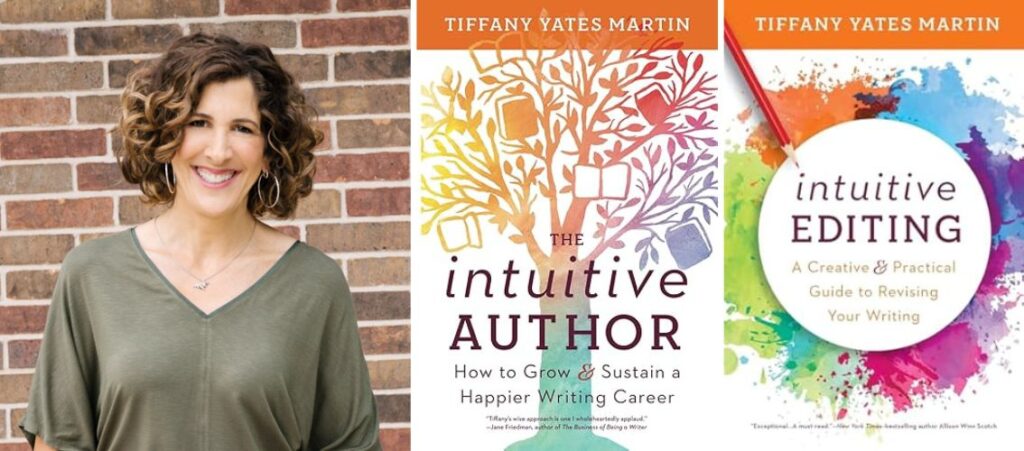The Intuitive Author With Tiffany Yates Martin
Description
How can you manage the competing priorities of an author career? How can you deal with the demons we all have to wrestle with along the way? Tiffany Yates Martin talks about the role of intuition in decision-making, the challenges of feedback and rejection, and the importance of reclaiming creativity during difficult times.
In the intro, Amazon Music Unlimited will now include a free audiobook a month [The Verge]; When to pivot or quit [Self-Publishing Advice]; Thoughts on sunk cost fallacy, and how do you know when things are ending? Are they spiraling up, or down?, Quit: The Power of Knowing When To Walk Away by Annie Duke.
Plus, HarperCollins AI licensing deal [The Verge; The Authors Guild]; and Seahenge is out everywhere, as well as at my store, JFPennBooks.com.
Today's show is sponsored by Draft2Digital, self-publishing with support, where you can get free formatting, free distribution to multiple stores, and a host of other benefits. Just go to www.draft2digital.com to get started.
This show is also supported by my Patrons. Join my Community at Patreon.com/thecreativepenn
Tiffany Yates Martin is an editor, speaker, and teacher with over 30 years in the publishing industry. She writes contemporary women's fiction as Phoebe Fox, and her latest non-fiction book is The Intuitive Author: How to Grow & Sustain a Happier Writing Career.
You can listen above or on your favorite podcast app or read the notes and links below. Here are the highlights and the full transcript is below.
Show Notes
- Overcoming the “writer demons”
- Setting priorities to help manage overwhelm
- Honing into your intuition in relation to your author career
- Distinguishing intuition from hype or peer pressure
- Defining goals that are within your control
- Staying resilient when dealing with feedback and rejection
- Reclaiming your creative spark in difficult times
You can find Tiffany Yates Martin at FoxPrintEditorial.com.
Transcript of Interview with Tiffany Yates Martin
Joanna: Tiffany Yates Martin is an editor, speaker, and teacher with over 30 years in the publishing industry. She writes contemporary women's fiction as Phoebe Fox, and her latest non-fiction book is The Intuitive Author: How to Grow & Sustain a Happier Writing Career. So welcome back to the show, Tiffany.
Tiffany: Thanks for having me again, Joanna.
Joanna: So we talked about your background when you were last on the show in April 2022, so today we're going to jump straight into the book. Why did you write this book?
What problems did you see in the author community that led you to want to write about happiness and sustainability?
Tiffany: I know, it's kind of a departure for me. I've spent all these years as an editor working on hard skills, craft skills, and teaching about that. Then I was actually in the middle of writing what was to have been the follow up book to my first, Intuitive Editing, which was a deep dive into character development.
I just kept writing and thinking and talking about these other ideas because I was hearing from a lot of authors that they were feeling overwhelmed by all the changes and the constantly evolving publishing environment.
I think it's a fortunate time to be an author because I think we have the opportunity to have more control and autonomy over our careers. We have more avenues than ever before.
Publishing has become democratized, but that also brings with it a lot of overwhelm.
I was hearing a lot of discouragement, so I started in my blog, where I used to focus a lot on hard skills, I started writing more about this stuff. I just wanted to try to help authors based on what I was hearing and seeing, and they got huge response.
So the character book just kept balking at me, and I finally realized that one of the things I kept talking about in my blog posts was to pay attention to your motivation, to what you want out of your career.
That's the part that we really have control over, is what our day to day life looks like as authors. So I decided to follow my own advice and turn my attentions to the book that really wanted to be written right now, that I felt like authors probably need more than ever.
Joanna: I think that's so important, as much as I'm sure your character book will be amazing if you do do it. I think this is something I felt very much last year, which is the more prescriptive—you call it hard skills there—the prescriptive, “do this, do that.” I mean character development, there's a lot of books on that. Your take would have been different.
Also similar, my last nonfiction book, Writing the Shadow, it's like the personal stuff, the mindset stuff, the lifestyle stuff, all of that actually is something that AI and the machines can't share. I mean, they can share it, but it's not their experience, whereas it is actually our experience. So I agree, I think that's so important.
Just on that overwhelm and the changes that are going on, what are some of the things that people are saying to you? Because I think that will resonate with people listening as well.
Tiffany: I was startled by how many—particularly in traditional publishing—how many authors were feeling discouraged by what seems to be trends in the industry.
I'm a fan of any kind of publishing path that fits an author, so I'm not slamming on traditional publishing, but advances do seem to be going down, in general. There is a fascination with the debut author.
So if you're not that shiny new thing, I think that it feels as if traditional publishing doesn't help an author build a following and a career over the span of their career in a way that it used to focus on. So it's like, come on, make a big splash with your book, or else they're moving on without you.
As a result of that, a lot of authors—I just talked to one yesterday—are being encouraged to try new genres, to write under a pen name so that you can kind of disown disappointing sales in the past.
Competition is higher than ever.
There's more than two million books published a year. So I think authors are feeling like it's harder and harder to pop out of the slush pile.
Even with indie publishing, with all the opportunity that it offers and the greater autonomy in many areas, there are a lot of different responsibilities au







